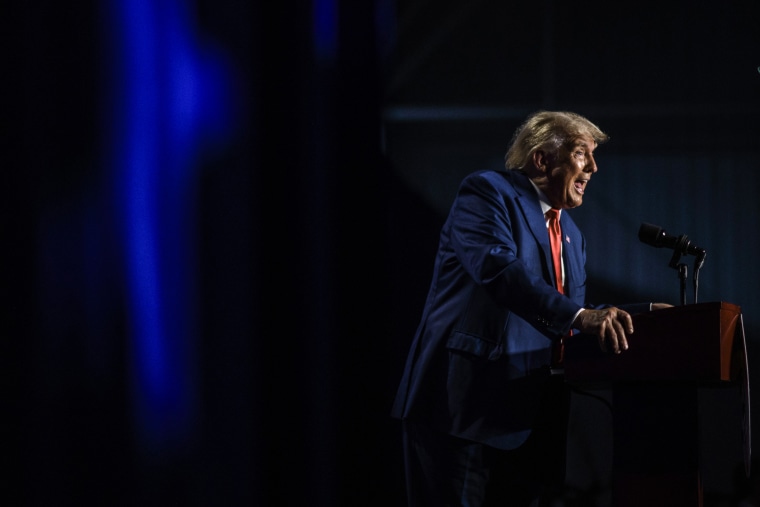It’s no secret that the politics of abortion rights are controversial, but there’s one thing everyone involved in the debate can agree on: The demise of Roe v. Wade fundamentally changed the game. On June 24, 2022, Republican-appointed Supreme Court justices handed down Dobbs v. Jackson Women’s Health Organization, and in the process, they jolted Americans’ assumptions.
Celinda Lake, a veteran Democratic pollster, reflected on this in comments to NBC News.
Lake said the Dobbs ruling gives Democrats an opening against Trump that they lacked in 2016. She lamented that voters didn’t believe Trump would actually fight to restrict abortion. But over his four years as president, Trump put three justices on the Supreme Court — all provided decisive votes to end the right to legal abortion.
“I was doing focus groups in Michigan with women, and I said: ‘Donald Trump is going to defund Planned Parenthood.’ And the women said, ‘No he’s not, that’s ridiculous.’ And I said I can show you the clip on TV, and I played the news for them,” Lake said. “And they said, ‘Are you kidding me? I don’t care what he says.’”
“So in 2016, it was very hard to make him anti-choice. After Dobbs, it’s not,” the pollster added. “And the linkage to his court — the Trump judges and the MAGA judges is very, very clear to voters.”
All of this makes a lot of sense. There was a great deal of complacency about reproductive rights in the recent past, with plenty of mainstream voters confident that the Roe precedent would hang on indefinitely. All of those assumptions, obviously, have been reassessed.
But can we also pause to marvel at focus group members' incredulity?
As regular readers might recall, in the aftermath of the 9/11 attacks, Congress eyed measures intended to give the economy a boost, and House Republicans were only too pleased to pitch their ideas. By any fair measure, the GOP bill included little more than tax cuts for corporations that the party wanted anyway. Even the editorial page of The Wall Street Journal conceded the plan “mainly padded corporate bottom lines.”
Democrats, eager to go on the offensive, convened focus groups to help sharpen their message. The party, however, quickly discovered a problem: Voters literally couldn’t believe that Republicans would respond to deadly terrorism by pushing corporate tax breaks. As The New York Times’ Paul Krugman explained at the time, the Republican proposal “was so extreme that when political consultants tried to get reactions from voter focus groups, the voters refused to believe that they were describing the bill accurately.”
More than a decade later, it happened again: A super PAC supporting Barack Obama’s re-election informed focus group participants about Paul Ryan’s budget plan and Mitt Romney’s support for it. As the New York Times reported soon after, respondents “simply refused to believe” what they were hearing, despite the fact that what they were hearing was true.
As New York magazine’s Jon Chait summarized at the time, focus group participants were receiving accurate descriptions of real GOP proposals, but the truth “struck those voters as so cartoonishly evil that they found the charge implausible.”
It must be frustrating for Democratic strategists to tell a room full of voters the truth, only to hear in response, “That can’t be right.”
As we’ve discussed, the underlying skepticism is understandable. The public has heard all kinds of outlandish accusations over the years, and it can be tough to know what and whom to believe. When mainstream voters hear about Candidate A or Party B pushing a radical idea, many no doubt assume, just as a matter of course, that the claims come with built-in exaggerations.
And apparently, this is the same problem Celinda Lake ran into seven years ago when talking to voters who found it implausible that Trump would dramatically roll back the clock on reproductive rights. The problem, of course, is that Lake wasn’t exaggerating to those focus group members, and the warnings about the changes to come were real.
For all the talk about American voters being cynical, sometimes they’re not quite cynical enough.
This post updates our related earlier coverage.

